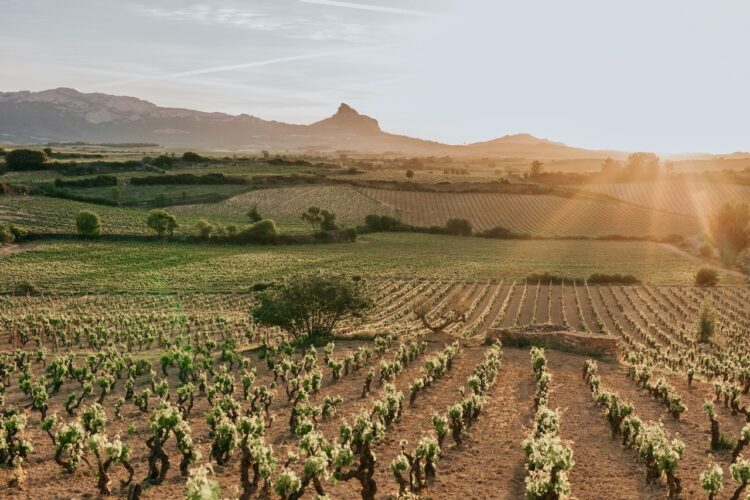Artadi Wines in Malaysia
Words: Monica Tindall
Photos: Ivan Chong
Wine with elegance. Wine that knows it’s only as good as the grapes it comes from. Wine that celebrates nature’s biodiversity without trying to conquer or reshape it to suit preconceived ideas of what it should be. Wine that honours terroir. This is Artadi.
Artadi has carved a reputation as a trailblazing winery with an unwavering dedication to craftsmanship, terroir, and the art of viticulture. The genesis of Artadi is a tale of youthful ambition and respect for the land. It began in 1985 in the village of Laguardia, in the heart of Rioja Alavesa, Spain, a region renowned for its higher altitude vineyards and chalky silt-clay soils. A collective of winegrowers, driven by a shared vision to craft wines that reflected their terroir, formed Bodegas y Viñedos Artadi. Among these founding members was Juan Carlos López de Lacalle, whose leadership saw Artadi undergo a metamorphosis, transitioning from a cooperative into a family-owned winery dedicated to producing wines that emphasise purity, elegance, and a true sense of place.
By the mid-1990s, Artadi had already begun garnering international attention, particularly for their single-vineyard expressions. However, one of the most daring and defining moments in their history occurred in 2015, when they decided to leave the DOCa Rioja classification system. Driven by a philosophical commitment to terroir and authenticity, this choice allowed Artadi to focus on crafting wines that truly reflected their unique identity.
In an exclusive tasting with Patricia de Lacalle from Bodegas y Viñedos Artadi, we learn of her family’s razor-like focus on bringing the terroir to the bottle. Thanks to Kuala Lumpur’s own oenophile legend, Yin How Wong (Vintry, Stoked, Jie, Mazi, Tucker & Co. and more), we have access to the Artadi label in Malaysia and wonderful opportunities to connect to the people who produce such celebrated wines.
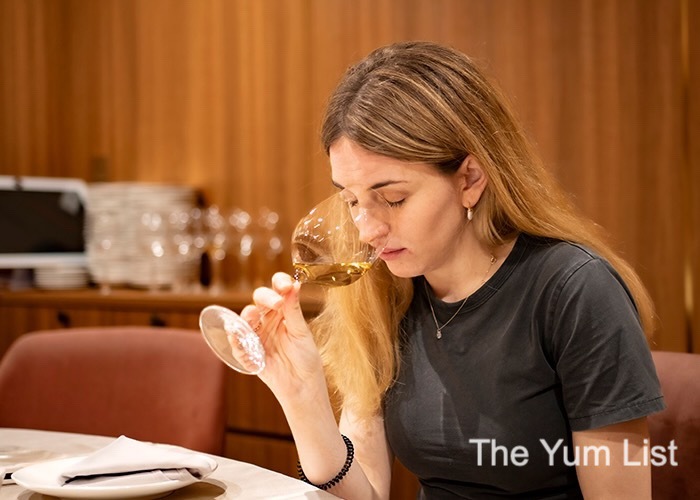
Patricia says that the Rioja DOCa is quite liberal in its classifications. Strict laws were not why the family withdrew their name from the system. Instead, they wanted to label their wines to reflect the land they grew in: Laguardia and Elvillar. Understanding that wine is primarily made in the vineyard, not solely in the winery, communicating this distinction is important for them to showcase terroir.
For a wine to earn the Rioja Crianza, Reserva, or Gran Reserva classification, it must meet specific minimum aging requirements, including time spent in oak, a process they believe adds value to the wine. While Artadi uses oak judiciously, the winery sometimes felt that mandatory oak aging could overshadow the delicate nuances of their single-vineyard expressions, particularly in vintages where fruit purity was paramount. Instead, Artadi gives all grapes the same treatment – traditional farming methods, hand picking, wild yeast fermentation, vinification, and bottling are pretty much standard across their labels, which allows the distinct character of each vineyard or village to be most apparent.
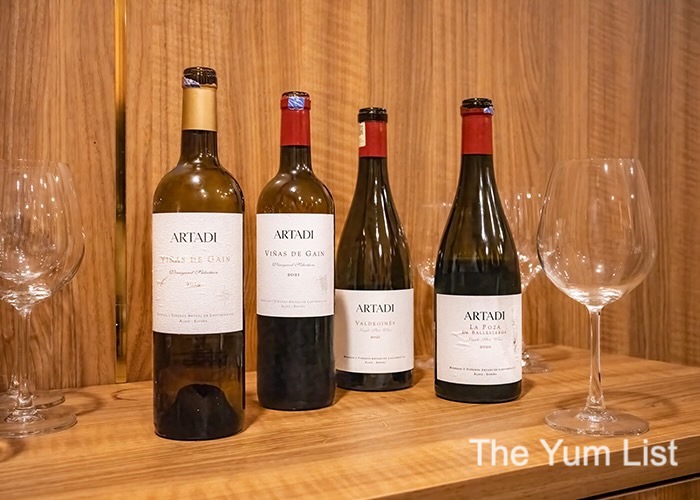
“There are no good or bad vintages,” says Patricia. Individuals might enjoy a particular year more or less, or it might be best drunk in its youth or with more age, but each year, the soil and weather bring something different, creating a variance in wine personality. “It’s a beautiful concept – tasting and appreciating the uniqueness that each year brings.”
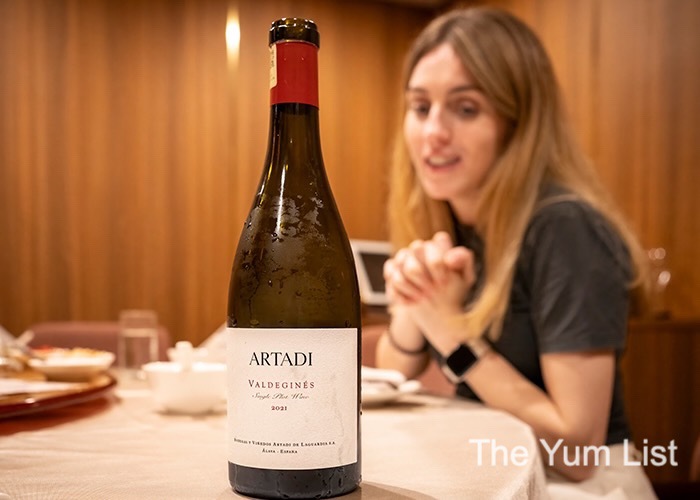
Artadi’s viticultural practices reflect this respect for terroir. They embraced organic farming (what they prefer to refer to as traditional farming, as it is a return to how vineyards were managed in the past) early on, recognising that healthy, living soils are fundamental to producing exceptional fruit. Biodynamic principles are employed in many of their vineyards, further enhancing the ecosystem’s vitality. Low yields are paramount, ensuring that the intensity and concentration of the grapes are maximised. Artadi was one of the first estates in Rioja to champion the use of cover crops between vine rows, a practice now more widely adopted for its soil health benefits.
The portfolio of Artadi wines highlights single-vineyard expressions. Their flagship wines, often carrying the name of the specific vineyard (e.g., Viña el Pisón, Quintanilla), are crafted from old Tempranillo vines in exceptional sites. And, while Papa Juan Carlos continues to be excited about the prospect of exploring the idiosyncrasies of more plots in the region, his children and wife have stopped Dad from purchasing more vineyards; Patricia jokes that it’s the only thing that all the siblings can decide on instantly and unanimously.
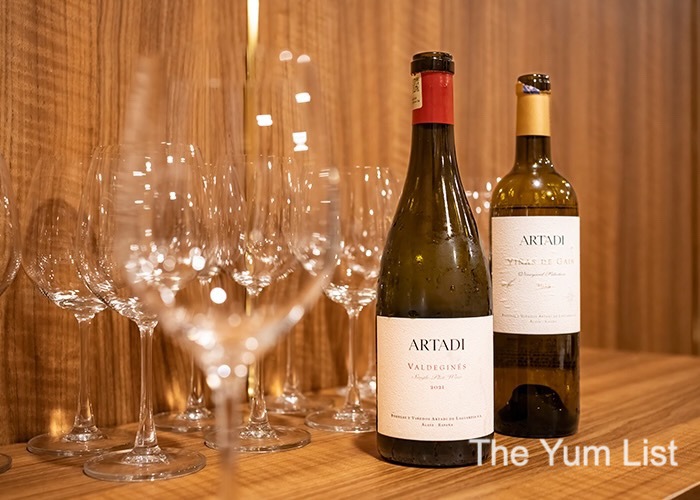
These single-plot expressions are wines of depth, complexity, and longevity, capable of evolving in the bottle for decades. Their stylistic approach, emphasising freshness, elegance, and minimal intervention, contrasts with some producers’ more traditionally oak-driven style. While they only use French and Austrian oak, it serves as a subtle frame, supporting rather than dominating the pure fruit character.
Beyond these iconic single-vineyard bottlings, Artadi also produces more accessible yet equally expressive wines under the Artadi Viñas de Gain labels. While blends from different estate vineyards, these wines still showcase the estate’s signature style of freshness, elegance, and purity of fruit. They offer an excellent entry point into the Artadi philosophy.
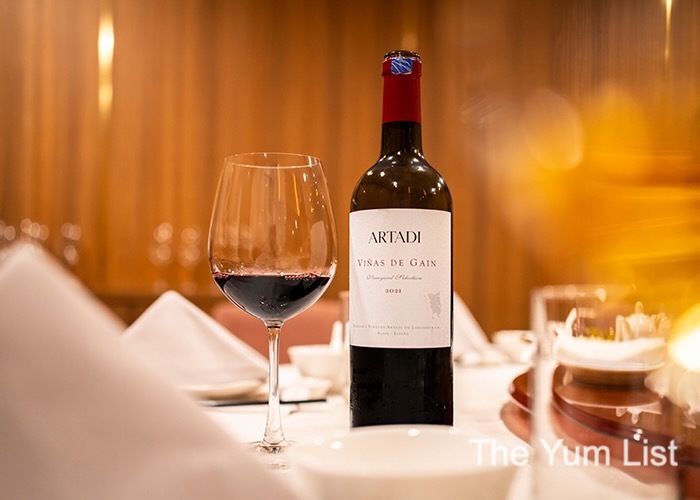
Artadi represents a fascinating chapter in the story of Rioja. They are a winery that honours the past while boldly embracing the future, crafting wines deeply rooted in their terroir and strikingly modern in their expression. Artadi is a pioneer, advocating for a new narrative in the region—one that celebrates diversity and the voice of the land above all else.
Get on the mailing list for some of Malaysia’s most reasonably priced and highest quality wines and opportunities to meet the makers by emailing [email protected] or messaging @vintry_malaysia on Instagram.
Find more of our favourite wine bars and restaurants in Kuala Lumpur here and stay up-to-date on the latest happenings in KL’s food and beverage scene with The Yum List on Instagram and The Yum List on Facebook.

